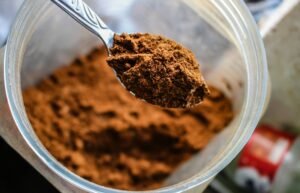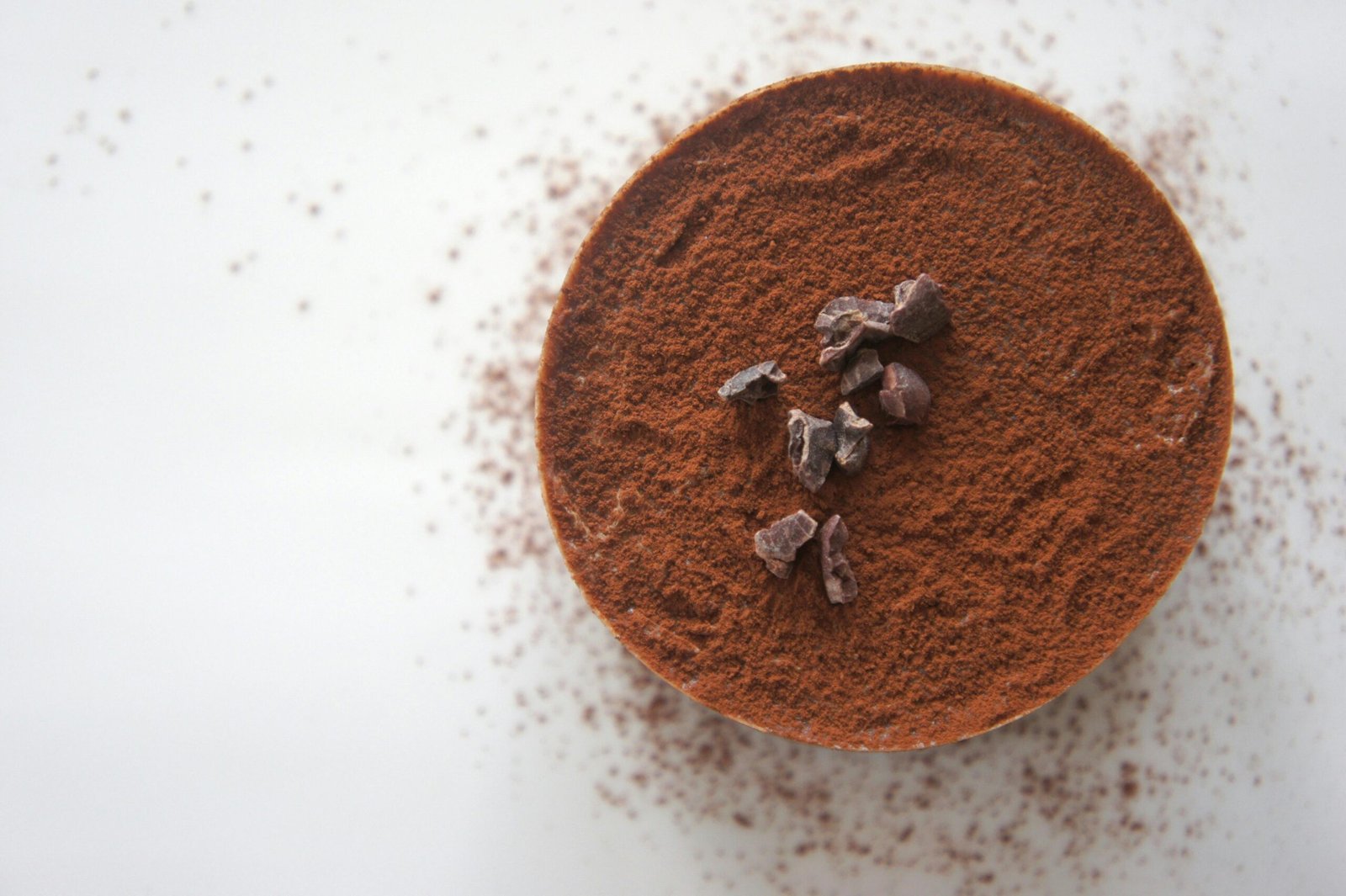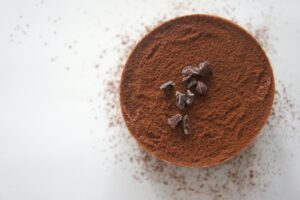Best Protein Powders for Muscle Gain:
When it comes to building muscle, selecting the right protein powder can significantly impact your fitness journey. With a myriad of options available in the market, finding the best protein powders for muscle gain can be overwhelming. Here, we present an in-depth guide to help you choose the most effective protein supplements to enhance your muscle growth and recovery.
Whey Protein Powder is Essential for Muscle Gain:
Protein is a crucial macronutrient that plays a vital role in muscle repair and growth. During intense workouts, muscle fibers undergo micro-tears, and protein aids in their repair and regeneration, leading to increased muscle mass. Protein powders provide a convenient and efficient way to meet your daily protein requirements, especially for those with busy lifestyles or higher protein needs.
Types of Protein Powders:
Whey Protein:
Whey protein is one of the most popular and effective protein supplements for muscle gain. It is derived from milk during the cheese-making process and is available in three main forms:
- Whey Protein Concentrate (WPC): Contains 70-80% protein, with some lactose and fat. It is affordable and has a good flavor profile.
- Whey Protein Isolate (WPI): Contains 90% or more protein with minimal lactose and fat, making it suitable for those who are lactose intolerant.
- Whey Protein Hydrolysate (WPH): Pre-digested and absorbed faster, it is often used in medical protein supplements and infant formulas.
Benefits of Whey Protein:
- Fast Absorption: Whey protein is rapidly absorbed by the body, making it ideal for post-workout recovery.
- Rich in BCAAs: Branched-chain amino Acids (BCAAs) are essential for muscle repair and growth, and whey protein is rich in these amino acids.
- Enhances Immune Function: Whey protein contains immunoglobulins that boost the immune system.
Casein Protein:
Casein protein is also derived from milk but is digested and absorbed more slowly compared to whey protein. This slow release of amino acids makes it an excellent option for a night-time protein.
Benefits of Casein Protein:
- Sustained Release: Provides a steady release of amino acids, making it ideal for muscle recovery during sleep.
- Rich in Micellar Casein: This form of casein forms a gel-like substance in the stomach, slowing down digestion and prolonging the release of nutrients.
- Promotes Fat Loss: Casein protein has been shown to aid in fat loss while preserving lean muscle mass.
Plant-Based Proteins:
For those who follow a vegetarian or vegan diet, plant-based proteins are a great alternative. Some common plant-based protein sources include:
- Pea Protein: Derived from yellow peas, it is rich in BCAAs and easily digestible.
- Brown Rice Protein: While it is lower in lysine, it is hypoallergenic and a good option for those with dietary restrictions.
- Hemp Protein: Contains omega-3 fatty acids and is high in fiber, promoting overall health.
- Soy Protein: A complete protein that contains all essential amino acids, making it an effective option for muscle gain.
Benefits of Plant-Based Proteins:
- Hypoallergenic: Suitable for those with dairy or gluten allergies.
- Rich in Nutrients: Often contain additional vitamins, minerals, and fiber.
- Environmentally Friendly: Plant-based proteins have a lower environmental impact compared to animal-based proteins.
Key Factors to Consider When Choosing a Protein Powder:
Protein Content and Quality:
Look for protein powders with a high protein content per serving and a complete amino acid profile. Whey protein isolate and soy protein are excellent choices due to their high protein content and quality.
Digestibility and Absorption:
Choose protein powders that are easily digestible and quickly absorbed by the body. Whey protein hydrolysate and pea protein are known for their excellent digestibility.
Flavor and Mixability:
A protein powder that tastes good and mixes well with liquids will be more enjoyable and easier to consume regularly. Many brands offer a variety of flavors, so you can find one that suits your taste preferences.
Allergen Information:
If you have any food allergies or intolerances, check the ingredient list to ensure the protein powder does not contain any allergens such as lactose, gluten, or soy.
Price and Value:
Consider the cost per serving and the overall value of the protein powder. While whey protein concentrate is usually more affordable, whey protein isolate and other specialized proteins might offer better quality and results.
Top Protein Powders for Muscle Gain:
1. Optimum Nutrition Gold Standard Whey:
Optimum Nutrition Gold Standard Whey is a top choice for many fitness enthusiasts due to its high-quality protein content and excellent mixability.
- Protein Content: 24 grams per serving
- Type: Whey Protein Isolate and Concentrate blend
- Benefits: Fast absorption, rich in BCAAs, great taste
- Flavor Options: Chocolate, Vanilla, Strawberry, and more
2. Dymatize ISO100:
Dymatize ISO100 is a premium whey protein isolate known for its purity and fast absorption.
- Protein Content: 25 grams per serving
- Type: Hydrolyzed Whey Protein Isolate
- Benefits: Zero lactose, zero fat, rapidly absorbed
- Flavor Options: Gourmet Chocolate, Cookies & Cream, Birthday Cake, and more
3. MuscleTech NitroTech:
MuscleTech NitroTech is designed for serious muscle gain, with added creatine for enhanced strength and performance.
- Protein Content: 30 grams per serving
- Type: Whey Protein Isolate and Concentrate blend with added creatine
- Benefits: Enhanced muscle recovery, increased strength, great flavor
- Flavor Options: Milk Chocolate, Vanilla, Strawberry, and more
4. Garden of Life Sport Organic Plant-Based Protein:
For those seeking a high-quality plant-based option, Garden of Life Sport Organic Protein is an excellent choice.
- Protein Content: 30 grams per serving
- Type: Blend of pea protein, sprouted navy bean, sprouted lentil bean, and cranberry protein
- Benefits: Certified organic, NSF Certified for Sport, rich in BCAAs
- Flavor Options: Chocolate, Vanilla
5. Naked Nutrition Naked Whey:
Naked Whey is a clean and pure protein powder with minimal ingredients, ideal for those looking for a natural option.
- Protein Content: 25 grams per serving
- Type: Grass-fed Whey Protein Concentrate
- Benefits: No additives, non-GMO, gluten-free
- Flavor Options: Unflavored, Chocolate
How to Maximize Muscle Gain with Protein Powders:
Timing of Protein Intake:
To maximize muscle gain, it is essential to consume protein at strategic times throughout the day:
- Post-Workout: Consume a fast-digesting protein like whey protein within 30 minutes after your workout to kickstart muscle recovery.
- Before Bed: Take a slow-digesting protein like casein before bedtime to support overnight muscle repair.
- Throughout the Day: Incorporate protein in your meals and snacks to ensure a steady supply of amino acids for muscle maintenance.
Combining with a Balanced Diet:
While protein powders are a convenient way to increase your protein intake, it is crucial to maintain a balanced diet that includes whole foods rich in proteins, carbohydrates, and fats. This ensures you get all the necessary nutrients for overall health and muscle growth.
Consistency and Patience:
Building muscle is a gradual process that requires consistency and patience. Regularly consuming protein, following a structured workout routine, and getting adequate rest are key to achieving your muscle gain goals.

Understanding Protein Powder Labels:
Ingredients List:
When evaluating protein powders, the ingredients list can provide insight into the product’s quality. Look for powders with minimal ingredients, such as pure protein sources and natural flavors. Avoid products with excessive additives, artificial sweeteners, and fillers.
Protein Source:
The source of the protein is a key factor in its effectiveness. High-quality sources like whey, casein, and plant-based proteins should be prioritized over blends with lower-quality proteins or unknown sources.
Certifications and Testing:
Opt for protein powders that have been third-party tested for purity and potency. Certifications from organizations like NSF Certified for Sport, Informed-Choice, and USP ensure that the product meets high standards of quality and is free from banned substances.
Popular Protein Powder Brands:
Optimum Nutrition:
Optimum Nutrition is renowned for its high-quality protein powders. Their Gold Standard Whey is a best-seller due to its blend of whey protein isolate, concentrate, and peptides, providing a versatile and effective protein source for muscle growth.
Dymatize:
Dymatize ISO100 is celebrated for its purity and fast absorption. As a hydrolyzed whey protein isolate, it is ideal for those needing a quick protein source post-workout, especially for individuals who are lactose intolerant.
MuscleTech:
MuscleTech NitroTech stands out with its addition of creatine, which enhances muscle strength and growth. It is a favorite among bodybuilders and athletes looking to maximize their muscle gains and recovery.
Garden of Life:
Garden of Life Sport Organic Plant-Based Protein offers a high-quality, organic option for plant-based athletes. Its blend of multiple plant proteins ensures a complete amino acid profile, making it a reliable choice for muscle building.
Naked Nutrition:
Naked Whey prides itself on purity and simplicity. With no additives or artificial ingredients, it appeals to health-conscious individuals seeking a clean and natural protein source.
Optimizing Protein Powder Usage:
Pre-Workout Nutrition:
Consuming protein before a workout can help fuel your muscles and enhance performance. A blend of protein and carbohydrates can provide the necessary energy and amino acids for a strenuous exercise session.
Post-Workout Recovery:
Post-workout is a crucial time for protein intake. Consuming a fast-digesting protein like whey immediately after exercise can aid in rapid muscle repair and growth. Combining protein with a source of carbohydrates can also replenish glycogen stores and support recovery.
Meal Replacement:
Protein powders can be used as a meal replacement when you’re on the go or unable to prepare a full meal. Ensure that the protein shake includes a balance of carbohydrates, fats, and micronutrients to create a complete and nutritious meal.
Supplementing a Balanced Diet:
While protein powders are convenient, they should not replace whole foods entirely. Incorporate a variety of protein sources from whole foods like chicken, fish, eggs, legumes, and dairy to ensure a well-rounded and nutrient-dense diet.
Recipes to Boost Your Protein Intake:
Protein-Packed Smoothie:
Ingredients:
- 1 scoop of your favorite protein powder
- 1 cup almond milk
- 1 banana
- 1/2 cup frozen berries
- 1 tablespoon peanut butter
- Ice cubes
Instructions:
- Combine all ingredients in a blender.
- Blend until smooth.
- Enjoy as a post-workout recovery drink or a meal replacement.
Protein Oatmeal:
Ingredients:
- 1/2 cup rolled oats
- 1 cup water or milk
- 1 scoop protein powder
- 1 tablespoon chia seeds
- Fresh fruit for topping
Instructions:
- Cook the oats in water or milk according to package instructions.
- Stir in the protein powder and chia seeds.
- Top with fresh fruit and enjoy a protein-packed breakfast.
Protein Pancakes:
Ingredients:
- 1 scoop protein powder
- 1/2 cup oats
- 1/2 cup cottage cheese
- 2 eggs
- 1/2 teaspoon baking powder
- 1/2 teaspoon vanilla extract
Instructions:
- Blend all ingredients until smooth.
- Heat a non-stick pan over medium heat.
- Pour batter into the pan, forming small pancakes.
- Cook until bubbles form on the surface, then flip and cook until golden brown.
- Serve with fresh fruit or a drizzle of maple syrup.
The Future of Protein Powders:
The protein powder industry is continually evolving, with innovations aimed at improving nutritional value, taste, and sustainability. Emerging trends include:
Enhanced Digestibility:
Advancements in processing techniques are making protein powders easier to digest. Hydrolyzed proteins, for instance, are broken down into smaller peptides, enhancing absorption and reducing digestive discomfort.
Sustainable Sourcing:
With growing environmental concerns, many brands are focusing on sustainably sourced ingredients. This includes plant-based proteins grown with minimal impact on the environment and animal-based proteins from ethically raised livestock.
Functional Ingredients:
Modern protein powders incorporate functional ingredients such as probiotics, digestive enzymes, and adaptogens. These additions can improve gut health, enhance nutrient absorption, and support overall well-being.
Personalized Nutrition:
The rise of personalized nutrition is leading to protein powders tailored to individual needs. Companies are developing formulations based on specific dietary preferences, fitness goals, and health conditions, providing a more customized approach to supplementation.

Conclusion:
Selecting the best protein powder for muscle gain requires understanding the different types of protein available, considering key factors like protein content, digestibility, and taste, and choosing a reputable brand. Incorporating protein powder into your diet strategically can significantly enhance your muscle-building efforts. As the industry evolves, staying informed about new developments can help you make the best choices for your fitness journey.















